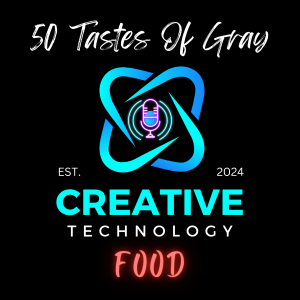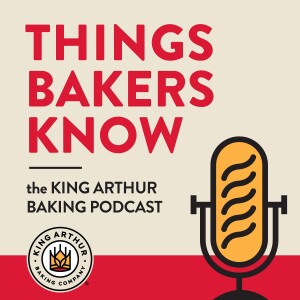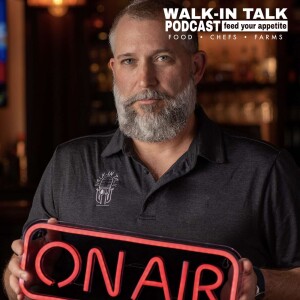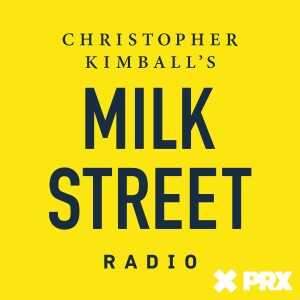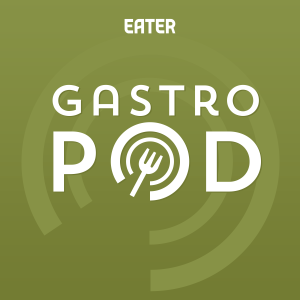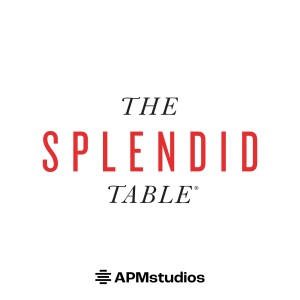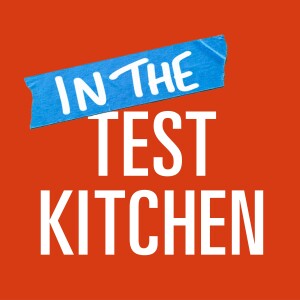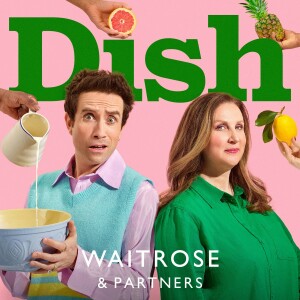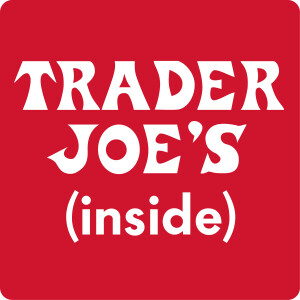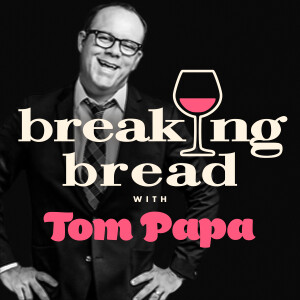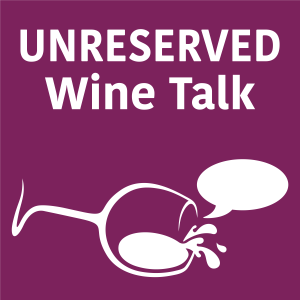

Unreserved Wine Talk
https://nataliemaclean.libsyn.com/rssEpisode List

349: Why is Languedoc a Popular Choice for Organic, Biodynamic, and Natural Winemaking?
How does your perspective change when you start looking at life one vintage at a time, divided into seasons? What does it look like when wine is so deeply connected to a region that it shapes work, landscape, community, and what a culture values most? Why is Languedoc becoming a popular choice for organic, biodynamic, and natural winemaking? What makes a “bon moment” and why is it worth taking seriously? In this episode of the Unreserved Wine Talk podcast, I'm chatting with Steve Hoffman, who has written an award-winning memoir called A Season for That: Lost and Found in the Other Southern France. You can find the wines we discussed at https://www.nataliemaclean.com/winepicks Giveaway Three of you are going to win a copy of Steve Hoffman's terrific new book, A Season for That: Lost and Found in the Other Southern France. To qualify, all you have to do is email me at natalie@nataliemaclean.com and let me know that you’ve posted a review of the podcast. I’ll choose three people randomly from those who contact me. Good luck! Highlights What was Steve’s favourite aperitif discovery in France? How did a funny mispronunciation lead to an embarrassing introduction? How did stuffed cuttlefish challenge Steve’s ideas about strong flavours and aromas in food? How does the historical connection between wine and work show up in French culture today? Why has the Languedoc remained in the shadow of Bordeaux and Burgundy, despite having the largest vineyard area in the world? What surprised Steve the most about the process of blending wine? Why does the latitude of a vineyard matter when learning about tasting wine? How can you have the best experience while visiting the Languedoc? Key Takeaways How does your perspective change when you start looking at life one vintage at a time, divided into seasons? You start thinking about the unfolding year as not months and days, but as seasons, and you look forward to the next season. And you participate fully, and then you let that season be done, and don't mourn it, because you know it's going to come around again. It forces you to be present in the moment, because it's not like, if I just wait long enough, things are going to get better. What does it look like when wine is so deeply connected to a region that it shapes work, landscape, community, and what a culture values most? In wine country, wine is not just a pleasant accompaniment to life; it literally forms everything. The vines themselves actually form the landscape and just becomes a part of everything. It's work, it's what creates revenue that the village can survive, but then it's also something that you have with almost every meal. Why is Languedoc becoming a popular choice for organic, biodynamic, and natural winemaking? It's still an affordable place to buy a hectare of vines, and so young winemakers can come in and they can afford to experiment with organic, natural or biodynamic winemaking. A lot of the chemicals to avoid spoilage - the Languedoc naturally doesn't have much of that. What makes a “bon moment” and why is it worth taking seriously? It's translated as a good moment, but in France, it has all kinds of other connotations. I think everybody who's listening will recognize one of those moments where you're sitting with people that you care about, where there's good wine and there's good food. That’s the centerpiece, that's the excuse to be together. But then the moment unfolds into something greater than itself. About Steve Hoffman Steve Hoffman is a Minnesota tax preparer and food writer. His writing has won multiple national awards, including the 2019 James Beard M.F.K. Fisher Distinguished Writing Award. He has been published in Food & Wine, The Washington Post, and The Minneapolis Star Tribune, among other publications. He shares one acre on Turtle Lake, in Shoreview, Minnesota, with his wife, Mary Jo, their elderly and entitled puggle, and roughly 80,000 honeybees. To learn more, visit https://www.nataliemaclean.com/349.

348: What’s It Like Moving Your Family Thousands of Miles to Live in the Wine Region of Languedoc, France? Steve Hoffman Shares Stories
How can you create a life you don’t need a vacation from? What can we learn from the French about slowing down, savoring meals, and making conversation the heart of gatherings? What’s it like living in the “other southern France”? In this episode of the Unreserved Wine Talk podcast, I'm chatting with Steve Hoffman, who has written an award-winning memoir called A Season for That: Lost and Found in the Other Southern France. You can find the wines we discussed at https://www.nataliemaclean.com/winepicks Giveaway Three of you are going to win a copy of Steve Hoffman's terrific new book, A Season for That: Lost and Found in the Other Southern France. To qualify, all you have to do is email me at natalie@nataliemaclean.com and let me know that you’ve posted a review of the podcast. I’ll choose three people randomly from those who contact me. Good luck! Highlights What do tax preparation and writing have in common? What inspired Steve to write about the Languedoc, which he refers to as the other Southern France? What were the major hurdles to getting A Season for That published? How did Steve shift from an article to a book mindset? What helped Steve find the balance between writing beautifully and the need to move the story forward? What important lessons did Steve learn from his editor, respected cookbook author Francis Lam? What was it like to move across the world with two young children? Are there insights about French parenting and family life that Steve continues to apply? How did Steve choose the specific village he wanted to live in? How do vulnerability and curiosity help with cultural immersion? Key Takeaways Steve says that we’re often sold the idea that our lives are boring and that we need relief from our lives. He believes in leading a life that doesn't require evacuation. That your life itself, if you are careful about it and a little bit intentional about it, can be the thing that you want to dive into every day. Steve mentions Thanksgiving as one of the very few occasions where he and his family commit to slowing down and making conversation around the table, and a great meal. There was something about the French willingness to let conversation be the point and a way of passing time that was really refreshing. Steve settled in 2012 as a family for an extended fall semester in the Languedoc region, which he refers to as the other southern France, because it is, to some extent, the poor cousin of what most people think of as southern France, primarily Provence and the Côte d'Azur, the Riviera, which was extensively touristed and a lot of money got brought into that region. Peter Mayle, Princess Grace, and F. Scott Fitzgerald made it a wealthy playground. Languedoc is the portion of Mediterranean France to the west of the Rhone. So the Rhone divides the country in two, east of the Rhone is Provence, and the Riviera west of the Rhone is Languedoc and eventually Roussillon. He had the kinds of experiences he had because they weren't in the grips of a tourist haven. About Steve Hoffman Steve Hoffman is a Minnesota tax preparer and food writer. His writing has won multiple national awards, including the 2019 James Beard M.F.K. Fisher Distinguished Writing Award. He has been published in Food & Wine, The Washington Post, and The Minneapolis Star Tribune, among other publications. He shares one acre on Turtle Lake, in Shoreview, Minnesota, with his wife, Mary Jo, their elderly and entitled puggle, and roughly 80,000 honeybees. To learn more, visit https://www.nataliemaclean.com/348.

347: Does Mozart or Metallica make wine taste better?
How does music, even types you dislike, make wine more enjoyable? Can curated playlists in tasting rooms and wine bars influence how customers drink, eat, and experience wine? What happens when you stop overthinking wine and music and just enjoy? In this episode of the Unreserved Wine Talk podcast, I'm chatting with Susan Lin, a Master of Wine and a Master of Fine Arts in Classical Piano and Musicology. You can find the wines we discussed at https://www.nataliemaclean.com/winepicks Highlights How does a low-pitched, slow-tempo musical piece impact the perceived fruitiness of wine? What does "timbre" mean in musical terms? How do different musical characteristics influence the perception of wine's effervescence? Did the participants’ music preferences correlate with their enjoyment of the wine? What might surprise you about how the wines tasted in silence compared? Why does the influence of sound on our perception tend to go unnoticed? How are some winemakers using music in their wineries? Are there retail applications for Susan’s research into the influence of music on the perception of wine? What would be Susan's ideal live concert and wine pairing scenario? What are some of the possibilities in the future for AI-generated music for wine experiences? Is there an interest in similar research on the intersection between dance and wine perception? What future research areas is Susan considering in terms of music and wine perception? What three objects would Susan display in a museum representing her life and passions? If Susan could share a wine with anyone outside the wine industry, who would it be and why? How can you start being more intentional about exploring sensory experiences with wine and music? Key Takeaways How does music, even types you dislike, make wine more enjoyable? Susan says that in her experiments, the wine that was consistently the worst, least balanced, was the wine tasted without music. Even if somebody said I really didn't like this music, it was a way better wine to them than without music. Even for the wine experts, the wines were much more palatable without music. I think that's why sound can be a very, very powerful thing. Can curated playlists in tasting rooms and wine bars influence how customers drink, eat, and experience wine? Susan has worked with tasting rooms and wine bars to curate their playlists in terms of the experiences that they want their customers to have. You want to have people be a little more relaxed in the morning, but then, you start amping it up for the evening. I put together a complete journey, that sort of sonic seasoning for different expressions of their wines, for big bold red versus for their light, youthful white wines. What happens when you stop overthinking wine and music and just enjoy? Susan says that with the melding of music and wine, there's still so much to learn. Keep trying things. Don't worry about whether it's right or wrong. Just enjoy the experience. Let everything come in sensorially and enjoy that and embrace again the mystery of things. We can't explain everything through data, and that's a good thing. About Susan R. Lin Susan R. Lin is a Master of Wine and a Master of Fine Arts in Classical Piano and Musicology. Susan’s MW research paper ‘Influences of Classical Music on the Sensory Perception of a Brut Non-Vintage Champagne’ and subsequent work on the interaction of music and wine have been featured in Decanter, Food & Wine, GuildSomm, and others. Each of Susan’s creations is rooted in academic research and inspired by a deep respect for the essence of wine and music. To learn more, visit https://www.nataliemaclean.com/347.

346: How Can Music Change the Taste of Your Wine? Susan Lin, MW, Shares Stories and Tips
Why might a symphony night pair just as well with your wine as a heavy metal ballad? What is “sonic seasoning” and how can music impact the way we experience the taste of wine? How are sensory experiences like music, taste, and atmosphere all connected? In this episode of the Unreserved Wine Talk podcast, I'm chatting with Susan Lin, a Master of Wine and a Master of Fine Arts in Classical Piano and Musicology. You can find the wines we discussed at https://www.nataliemaclean.com/winepicks Highlights What did Susan's grandfather teach her about fine beverages and hospitality? How did playing piano in hotels as a child shape Susan's perspective on the holistic nature of our sensory experiences? Is there a connection between Susan's backgrounds in tech, music, and wine? When did Susan decide she wanted to dive deeper into the intersection between music and wine? What makes a wine "musical"? How do cross-modal correspondences impact wine tasting? Why was Brut Non-Vintage Champagne Susan’s choice for her research paper? What is "sonic seasoning" in the context of wine and music? What was Susan's most memorable wine and music pairing event? What might surprise you about the intersection between classical music and heavy metal? How did Susan set up her experiment to observe how music affected participants' perceptions of the wine they were tasting? Key Takeaways Susan says she was always encouraging a Bach goth night at the symphony to bring people together. I like to say, whether my Brahms is your Metallica or vice versa, music can make such a difference in what you're feeling. Hence, if you got a glass of wine, what you're tasting in that glass, right? I've actually done a few experiments with heavy metal. People feel a lot of things, and there are ballads in metal. It's not just your typical really assertive sound all the time. It can be really soulful too and I noticed a lot of use of medieval melodies and folk songs in the ballads that are really nice. So not too far of a distance between Brahms and Metallica in that sense. Susan explains that if you're listening to something that might add a little bit of pizzazz here or there to your wine, like seasoning can do. It's more of a fun term, not a scientific term. All classical composers experienced all the emotions and all the feelings that we all do and it comes through in their music. Maybe they can be feeling joyful or melancholy or longing or frustrated or upset, and everything in between. So the nature of the seasoning is that it can run in many, many different ways. Susan observed during her performances how moods of the guests changed depending on what she played. Everything in the sensory world, all of our experiences, are really taken in holistically, right? It's not like, oh, we're just listening to this one thing and that's isolated. Oh, and we're tasting this one thing, we're smelling this one thing, and we're seeing something. It's all together. I knew that it was something special, and knew that it was something that I wanted to learn more about, or just somehow be a part of. And playing the piano in those situations actually was a great way for me to be a part of it. About Susan R. Lin Susan R. Lin is a Master of Wine and a Master of Fine Arts in Classical Piano and Musicology. Susan’s MW research paper ‘Influences of Classical Music on the Sensory Perception of a Brut Non-Vintage Champagne’ and subsequent work on the interaction of music and wine have been featured in Decanter, Food & Wine, GuildSomm, and others. Each of Susan’s creations is rooted in academic research and inspired by a deep respect for the essence of wine and music. To learn more, visit https://www.nataliemaclean.com/346.

345: What Turns A Wine Country Visit Into An Incredibly Memorable Experience? with Amy Wislocki, editor-in-chief of Decanter
What turns a wine country visit into an incredibly memorable experience? What are the hidden perks of off-peak wine travel? How has digital media transformed the way people plan wine travel? In this episode of the Unreserved Wine Talk podcast, I'm chatting with Amy Wislocki, editor-in-chief of Decanter, the world’s most prestigious wine magazine. You can find the wines we discussed at https://www.nataliemaclean.com/winepicks Giveaway Two of you are going to win a copy of her terrific book, The Ultimate Wine Lover's Travel Guide. To qualify, all you have to do is email me at natalie@nataliemaclean.com and let me know that you’ve posted a review of the podcast. I’ll choose two people randomly from those who contact me. Highlights What don’t many wine lovers realize about the wine-making history of the country of Georgia? How important is authentic cultural immersion to wine travel? Can wine tourism help preserve cultural heritage in regions recovering from political strife? What’s the association between wineries and wildlife? How and why are many wineries now catering to families? What was Amy’s approach to balancing practical with sharing the romance of the locations in The Ultimate Wine Lover's Travel Guide? What would Amy include in her perfect wine day itinerary? How has COVID-19 impacted wine travel? What are the advantages of travelling to wine regions outside of the peak seasons? Is environmental consciousness changing wine tourism? How has digital media transformed wine travel writing? Has the rise of influencers changed the wine industry? What would Amy add to a new edition of the book? What should you be asking about wine travel? How does Amy want readers to feel after reading The Ultimate Wine Lover's Travel Guide? Which famous figures would Amy want to be able to share a bottle of wine with? Key Takeaways What turns a wine country visit into an incredibly memorable experience? Amy advises to mix it up a bit and not cram too much into the day, because then that becomes too stressful. Probably a bit of planning will help to make it a perfect day. Often you need to book in advance. So maybe just two winery visits, one in the morning, one in the afternoon. Go somewhere for lunch where you can sit outside and just enjoy the beautiful views, get some fresh air. You might be able to hire a bicycle or go for a hike around the vineyards. See a beautiful village that has some nice culture, or architectural churches. What are the hidden perks of off-peak wine travel? Amy says the main thing is that the winemaker might have more time to spend with you. There must be certain times of the year that are really busy, not only in terms of tourists, but in terms of the winemaking. Also you have a higher chance of just being able to get into some of the most sought-after wineries. There might be some wineries that are just fully booked for ages. How has digital media transformed the way people plan wine travel? Amy observes that on social media, you can watch videos and reels of place which inspires people to do more research. So they might be sparked off by something they see on TikTok or Facebook or Instagram, and then they might go to Decanter.com, and read the whole article. So it’s all complementary. About Amy Wislocki Amy has more than 30 years' experience in publishing, and worked at a senior level for leading companies in the consumer, business-to-business and contract publishing arenas, before joining Decanter in October 2000 as Magazine Editor. As well as overseeing content planning and production for the print offering, she has also been involved in developing digital channels, Decanter.com and Decanter Premium. To learn more, visit https://www.nataliemaclean.com/345.
You may also like
Create Your Podcast In Minutes
- Full-featured podcast site
- Unlimited storage and bandwidth
- Comprehensive podcast stats
- Distribute to Apple Podcasts, Spotify, and more
- Make money with your podcast
